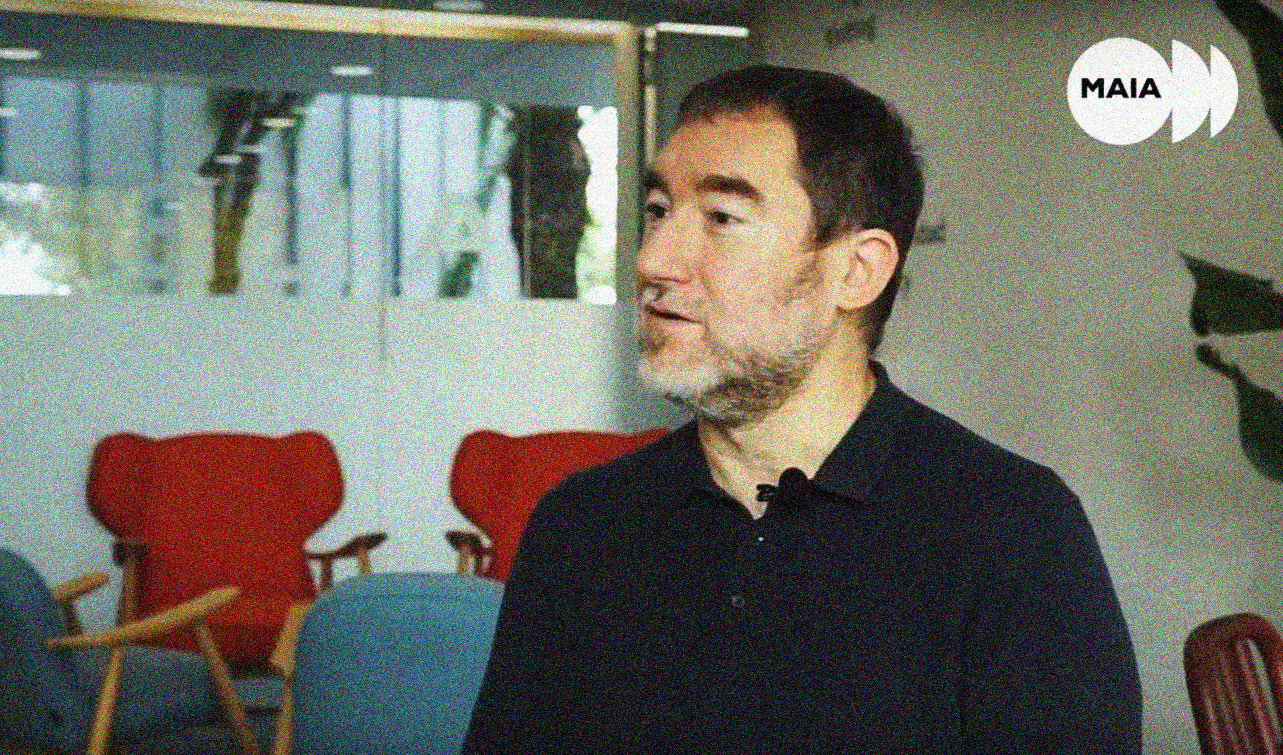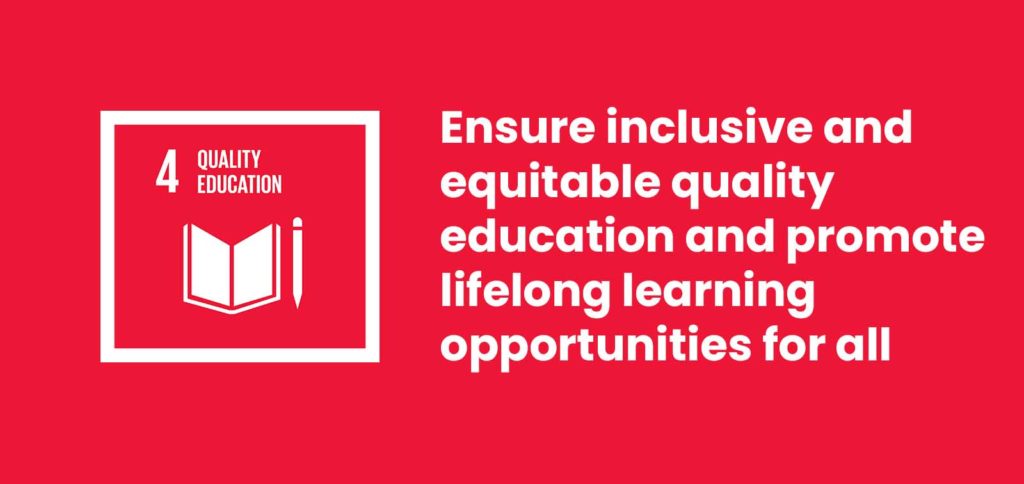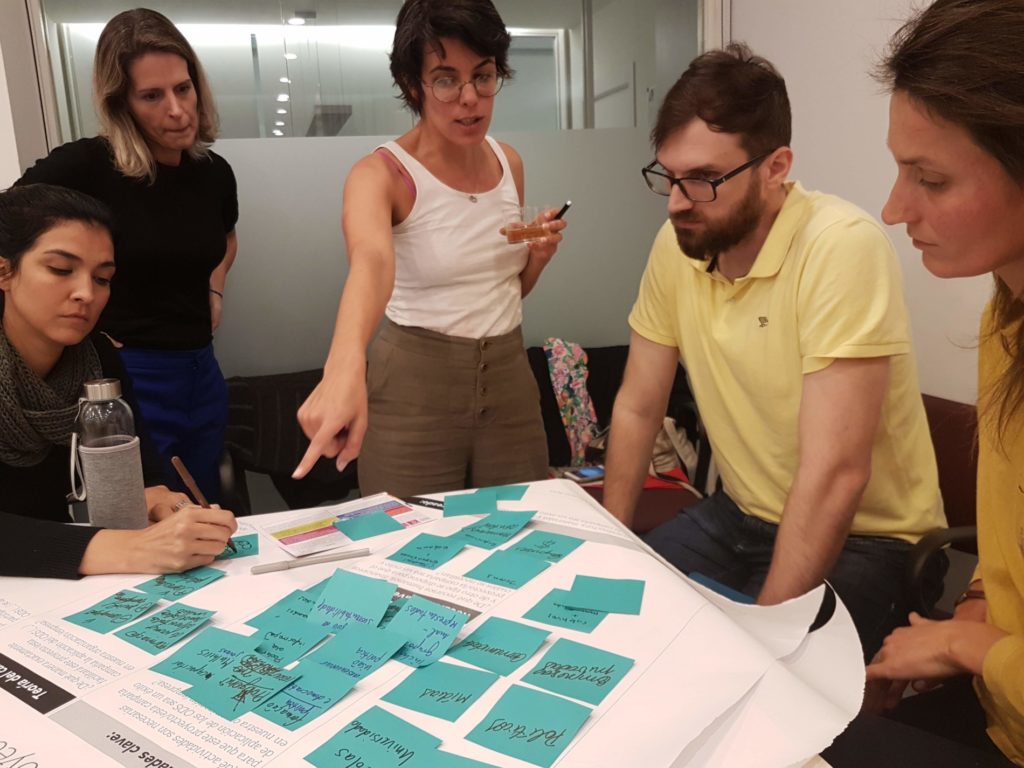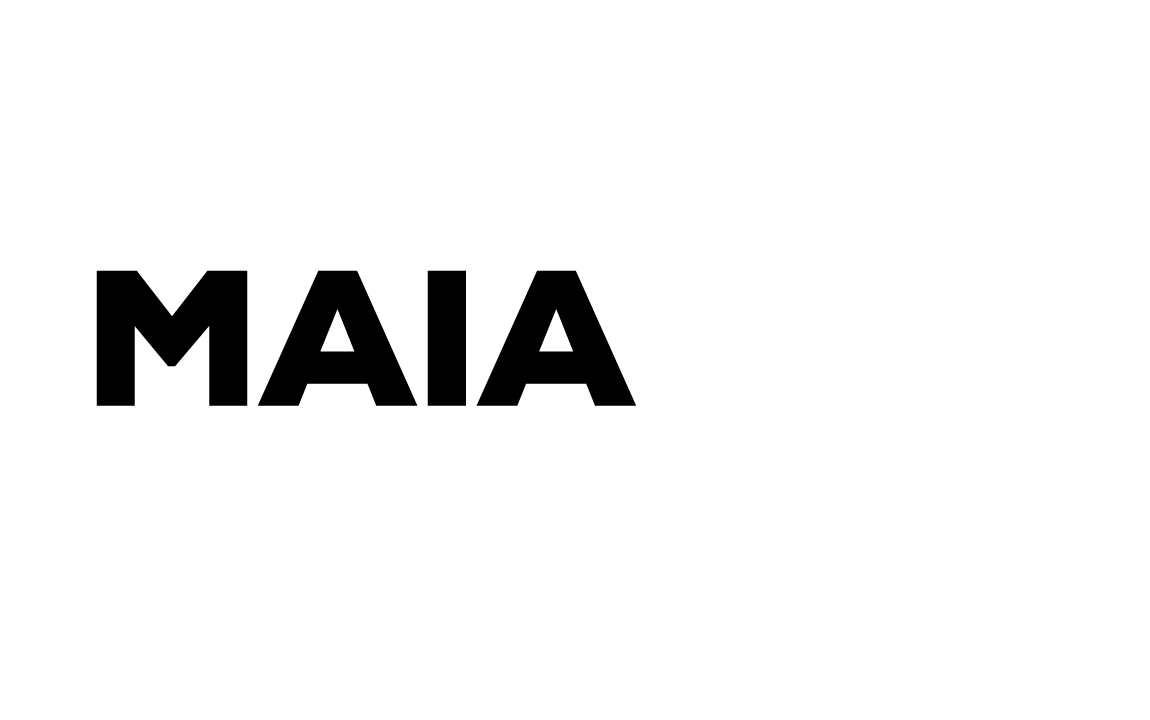
07/02/2020
Change education, change the world!
What is school education purpose? What is its role in achieving the SDGs? How conventional education methods fit in (or dont) today’s challenges? What do we already know about how people learn and how could we use that to change the world?
During MAIA Program, Catalan teacher Boris Mir facilitated a workshop where participants were invited to reimagine education and what an innovative school would look like. Mir is the former director of the program Escola Nova 21, an alliance of schools and civil society institutions for an advanced education system that has been carried out between 2016 and 2019 in Catalonia. The succesfull program showed a feasible and collaborative path towards a paradigm shift in education.

We have asked him a few questions afterwards, read the interview or watch the video below!

MAIA: What skills must people have to develop a socially active and ecological citizenship?
BM: In fact, many of the competencies we need, our current curricula already contain them. However, there is a huge gap between what we say we want to do and what we are doing. Worldwide, curricula speak for example about critical competences, analytical thinking, creative thinking. And then … what we put in practice in the classrooms is far from our ambitions.
So it is not a matter of designing a new curriculum or thinking about competencies, because surely world standards would work pretty well. The problem is that we don’t know how to land these with the methodologies we use, with the outputs. The definition of «school success», for example. «School success» is not uderstood as raising «competent citizens», but often related to other things, I would say, to an outdated perception of it: people who approve in exams, who take good grades, etc.
If we define school success, or excellence, in these terms, which are not wrong and then we have a curriculum that says that we must develop competent citizens… We should define what it means to be a competent citizen, right? That is, value and evaluate success in this terms: if a person is capable of making decisions, has a solid cultural foundation to interpret the world in which she or he lives, is respectful with the environment, fights for inequalities and to change the model, for example, to a sustainable one… In the end, more than a matter of definition, I believe that the challenge we have now is «how can we make this happen, in every school and in every educational environment?»
MAIA: What educational methodologies would make this change possible?
BM: There is no prescription of a methodology or not even of a set of useful methodologies. What we do know is that any methodology should be based on what we already know about how people learn, for example: A methodology that is focused on the students activities is key. A methodology that can relate the students’ prior knowledge with what we want them to learn, with new skills, is key. That learning has a social dimension is key. That learning is based on interests, motivations and needs and that this triangulation is what end up making meaningful learning.Because we know all that.
Now, this can be developed in many ways: with project learning, with service-learning, with globalized projects, with direct instruction. The theme is, at every moment, how we are developing a person´s skills and abilities. But sometimes the debate is very much focused on «what is the tool?» Well, there are many tools, right? But in any case, the chosen tools must be consistent with what we know about how people learn.
On the other hand the tools or methodologies must be at the service of the objectives that we have set for ourselves, which shouldn´t be purely transmissive or purely reproductive. If we want critical people, analytical people, then we will have to use the tools at the service of achieving this. And sometimes we find that methodologies that might seem very efficient or very advanced are being used but the «success» people are looking for, remains a very impoverishing notion of success, very reproductive, very … let’s say, very little empowering for children.
MAIA: Is education the main tool to achieve the SDGs?
BM: Yes, yes, in fact, it is the only one, isn’t it? That is, if we want the world to change, things have to change. And since education is now understood as a process throughout life… All people, we have to learn and we have to acquire new capabilities as we encounter situations in life that are surely more complex, more technological, more unequal. The SDG challenges, is a clear example of how we need lifelong learning.
So it is not that education is key during school stages, but that quality education throughout life is a global goal. So it doesn’t mean that «as a child, she or he has to be …» No, no. I am an adult and therefore I have to be learning permanently so I have to find a confortable balance, not a stressfull one, to make learning part of my normal everyday activities.
And, above all, we are talking about self-directed learning, because you are always learning: a new language, a new culture that you want to relate to, meeting different people, learning to relate to people with different ages and values… Well, all this is lifelong learning. It is not only a challenge, but also a source of enjoyment, pleasure and personal growth. I mean, I don’t see it as a problem «We have to be learning!». No, no. Fortunately we can always learn, and therefore it is a facet that is an integral part of a full life.
I mean, a person who doesn’t learn, I wonder if could be happy. We must have a kinder and more cordial relationship with learning, and this is a topic … If we link learning with suffering or anguish, we are translating a lifelong activity into something that is not satisfactory. And no: it’s very good to learn! In fact, everyone wants to learn. There are indeed people who may not want to study. But I don’t know anyone who doesn’t want to learn. Therefore, it is a very powerful tool to change the world. I think it is the main tool.
[mailpoet_form id="1"]
